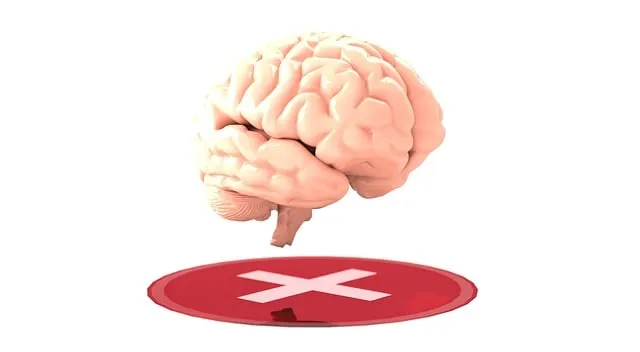The Kaiser Permanente mental health center in Lakewood combats stigma through education, awareness campaigns, and open dialogues, encouraging community members to prioritize mental wellness without judgment, as evidenced by positive reviews. Their initiatives include empathy-building for healthcare providers, coping skills development for patients, and community engagement strategies, fostering a supportive environment for help-seeking and reducing mental illness stigma.
Mental illness stigma remains a significant barrier to effective treatment and recovery. This article explores comprehensive efforts to reduce this pervasive societal issue. We delve into the profound impact of stigma on mental well-being, highlighting the proactive role played by organizations like Kaiser Permanente’s mental health centers in Lakewood. Through community engagement, myth-busting initiatives, and strategic communication, we examine how these approaches break down barriers and foster understanding. Learn about effective advocacy strategies for mental illness to create a more inclusive society.
- Understanding Stigma: Impact on Mental Health Seeking
- Kaiser Permanente's Role in Dispelling Myths
- Community Engagement: Breaking Down Barriers
- Effective Communication Strategies for Mental Illness Advocacy
Understanding Stigma: Impact on Mental Health Seeking

Stigma surrounding mental illness can have a profound impact on an individual’s willingness to seek help and support, often leading to delays in treatment and worse outcomes. The consequences are severe, affecting not only the person experiencing the condition but also their loved ones and the broader community. At Kaiser Permanente mental health centers, like those in Lakewood, efforts are focused on reducing this stigma through education and awareness campaigns. By promoting understanding and empathy, these initiatives aim to encourage individuals to view mental health issues as treatable medical conditions rather than personal failures.
One approach involves fostering open conversations about mental wellness, incorporating topics into everyday discussions and media, including self-care routine development for better mental health and stress reduction methods. Additionally, the Mental Wellness Podcast Series Production has emerged as a powerful tool to share personal stories, provide practical advice, and dispel myths. These strategies collectively work towards destigmatizing mental illness, ensuring that those in need feel supported and empowered to prioritize their mental wellness, as evidenced by favorable Kaiser Permanente mental health center reviews Lakewood.
Kaiser Permanente's Role in Dispelling Myths

Kaiser Permanente, a prominent healthcare organization, plays a pivotal role in reducing stigma surrounding mental illness through various initiatives. Their mental health centers, such as the one in Lakewood, serve as safe havens where individuals can seek support and treatment. By providing comprehensive care, Kaiser Permanente aims to dispel myths and misconceptions associated with mental health issues.
One of their key strategies is implementing Empathy Building Strategies that train healthcare providers on cultural competency. This ensures staff members understand the unique challenges faced by patients from diverse backgrounds, fostering a more inclusive environment. Additionally, Coping Skills Development programs offer valuable tools for individuals to navigate and manage their mental health. Through these efforts, Kaiser Permanente is making significant strides in creating a more supportive and non-judgmental atmosphere, encouraging open conversations about mental illness.
Community Engagement: Breaking Down Barriers

Community engagement is a powerful tool in the battle against mental illness stigma. By reaching out to local communities, such as the vibrant neighborhood surrounding the Kaiser Permanente mental health center in Lakewood, we can break down barriers and foster understanding. This strategy involves hosting educational workshops, inviting community leaders to share their experiences, and organizing awareness campaigns that dispel myths about mental health issues. These initiatives not only educate but also create a safe space for open dialogue, encouraging folks to seek help without fear of judgment.
Incorporating the insights of those who have faced mental health challenges, along with promoting evidence-based practices, is essential in these engagement efforts. For instance, highlighting successful Stress Reduction Methods and Depression Prevention strategies can inspire hope and encourage early intervention. Even burnout prevention techniques tailored for healthcare providers can be shared, as these professionals are often on the front lines of mental health care, playing a crucial role in reducing stigma at its source.
Effective Communication Strategies for Mental Illness Advocacy

Mental illness advocacy requires clear and compassionate communication to dispel misconceptions and promote understanding. At Kaiser Permanente mental health centers like those in Lakewood, advocates emphasize open dialogue, using straightforward language to explain conditions and treatment options. This approach helps demystify mental health issues, fostering an environment where individuals feel comfortable seeking support.
Effective communication strategies include sharing personal stories, which humanizes mental illness and emphasizes shared experiences. Crisis Intervention Guidance and Emotional Well-being Promotion Techniques are integral parts of this process, focusing on immediate support and long-term coping strategies. Additionally, integrating Stress Reduction Methods can help individuals manage symptoms and promote overall well-being. By employing these tactics, mental health advocates at Kaiser Permanente aim to reduce stigma, encouraging a more accepting and supportive community for those dealing with mental health challenges.
Mental illness stigma reduction is a multifaceted approach, from understanding its profound impact on seeking mental health services to engaging communities and employing effective communication strategies. Organizations like Kaiser Permanente play a pivotal role in dispelling myths through their mental health center reviews, as seen in their Lakewood location. By fostering open dialogue and breaking down barriers, we can create an environment where individuals feel empowered to pursue the care they need without fear of judgment. This collective effort is essential for improving mental well-being and ensuring everyone has access to the support they deserve.






